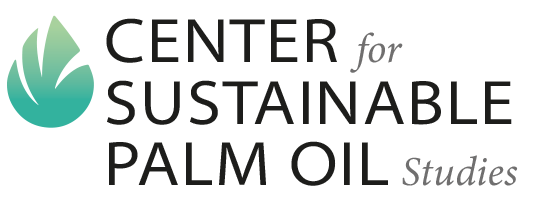
Purpose and sustainability are front in center at most public companies as investors as well as consumers’ expectations have evolved. Why should private companies care? Is there a model companies should consider as they integrate adding good to society into their business objectives? “Increasingly companies — both private and public — are being asked to provide transparency on their behaviors so they aren’t de-selected from B to B consideration in the purchase,” says Thomas Singer, researcher at The Conference Board. “Not too mention consumer brands know that Gen-Z and Millennials are looking at the entirety of the brand’s behavior in addition to the product itself. Finally, employees are making career choices that are influenced based on the values of the brand aligning to their personal values.”
Make no mistake: Making a profit is crucial to any company’s ability to add good to society and I’m not talking about charitable giving, corporate social responsibility or philanthropic acts. These are important but they don’t replace the need to address bigger topics.
I’ve advocated for the model below because it allows companies to balance purpose with profits in ways that impact people, communities and the planet for the better.

In an effort to understand how this topic has elevated in importance and impacted one large private company I met with Andy Pharoah, VP Corporate Affairs and Sustainability at Mars to talk about their brands and brand responsibility.
Jeff Fromm: How has purpose impacted big decisions at Mars?
Andy Pharoah: At Mars, we’re driven by the belief that the world we want tomorrow starts with how we do business today. This idea—our purpose—is at the center of who we have always been, and it’s what drives our strategy and decision-making to this day. Our purpose is also what we use to look at every aspect of our business and our greater role in society, considering how to use it to drive greater positive change.
We employ 135,000 Associates across the globe in more than 80 countries, and we sell in roughly 180. Regardless of what part of the Mars business you are in, or where in the world you are, purpose is the common thread—setting a clear expectation for our leaders and acting as a rallying cry for all of our Associates. It’s something that makes the Mars family proud, and something that brings huge benefits to the communities in which we operate.
This has never been truer than in the face of the global Covid-19 pandemic, which has immersed us in a situation unlike anything we’ve ever seen before. As a purpose-led business, our utmost priority since the beginning has been to ensure the safety of our Associates, do our part to prevent the spread, and support our communities, while delivering the products and services that people and their pets rely on.
It’s important to acknowledge that the pandemic has stalled, even reversed, the world’s progress in a range of critical areas around income and poverty. Even some of the temporary environmental gains made will not be enough to stem the climate emergency. Bold, systemic action is therefore needed, and a thin silver lining from the pandemic is that the international response to tackling it has demonstrated that we absolutely have the capacity to act urgently and radically to address the world’s biggest societal and environmental threats.
Fromm: On the United Nations SDGs, what’s been accomplished at Mars? What is left to do?
Pharoah: As a business, Mars fully supports action toward achieving the Sustainable Development Goals (SDGs), seen most clearly through our Sustainable in a Generation Plan, which we launched in 2017. And despite the challenges we’ve faced this year, we’re not wavering from our key commitments.
The plan came with a $1 billion investment to extend our focus deep in our extended supply chains, driving transformational change, not incremental improvement, in sustainability. Part of that commitment involved us assessing our agricultural supply chains, and we prioritized 10 raw materials that have a big impact on our business, social and environmental challenges. This work means we’re not shying away from talking about some tough topics—poverty, deforestation and basic human rights, chief among them.
Our most recent achievement came just this year when Mars announced that our Palm Positive Plan had delivered a deforestation-free palm oil supply chain, a significant milestone in our efforts to tackle deforestation and advance respect for human rights.
Palm oil is used in more than half the world’s packaged goods across a range of food and personal care items and has therefore been a top priority for us. When produced sustainably, palm can deliver value through the entire supply chain by providing agricultural advantages and better livelihoods for smallholder farmers, suppliers, and workers. This is just one example of finding the areas we need to improve in and taking action, not just talking about it.
Finally, looking at climate, over the past two years we’ve broken the link between economic growth and carbon growth. To some extent it’s really the holy grail for environmentalism: you can be a more successful business producing more, and yet still reduce your emissions. We also have science-based targets—GHG emissions across our value chain by 27% by 2025 and 67% by 2050—in order to do our part to keep the planet from warming beyond two degrees. Over the last three years, we’ve reduced greenhouse gas emissions in our operations by ten percent. We are now at 53% of all our electricity being renewable 100% of operations in the U.S. and the U.K.
Fromm: Mars is a private, family-owned company but it holds itself up to standards that you might expect from a public company. Why is that?
Pharoah: Public or private, many of the challenges that face communities around the globe are the same, and so must the responsibilities of companies be in addressing them. To truly be successful, business needs to stand for more than just near-term financial performance, and in this new world, winning is just as much about having a positive impact on the society in which a company operates.
What differentiates Mars in this regard, though, is how we do things. Our financial freedom, enabled by being privately-owned, allows us to take a longer-term view and think not in quarters, but in generations. We are constantly asking ourselves about what impact the decisions we take today will have on the future.
To hold ourselves accountable in these efforts, we have the Mars Compass—set out by the Mars family to articulate clear shareholder objectives, which include strong financial performance, being well positioned for future growth, having a positive impact on the world, and being a trusted partner in society. This Compass guides our Board and those of us on the Mars Leadership Team to operationalize it in our business strategy. It is an enterprise tool which helps us assess whether we are living up to our purpose and creating mutual benefits.
At a practical level, increased focus on this holistic, long-term approach means considering broader economic outcomes and our resiliency as a business in the years ahead, making some decisions today that are simply good business, and others that are just the right thing to do to make the business sustainable and modern to the times.
Our response to the pandemic is the perfect example of this. One day, this will be behind us, and the world will be different. I believe our commitment to protecting our Associates, alongside the innovation, ingenuity and pace that are helping us through the crisis, will lead to more permanent changes in the ways we get things done, and we’ll therefore be better positioned for business upswing when it comes.
By Jeff Fromm
Original link here : https://www.forbes.com/sites/jefffromm/2021/02/25/from-palm-oil-to-purpose-mars-vp-weighs-in-on-why-private-companies-must-focus-on-sustainability/?sh=295dd2d84691


